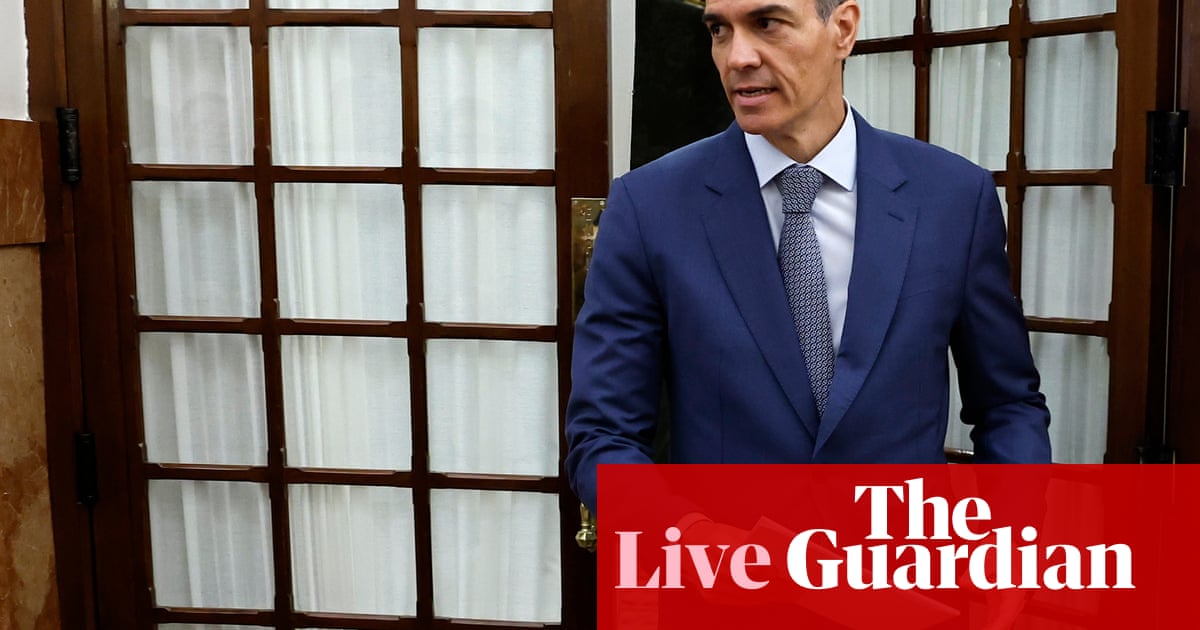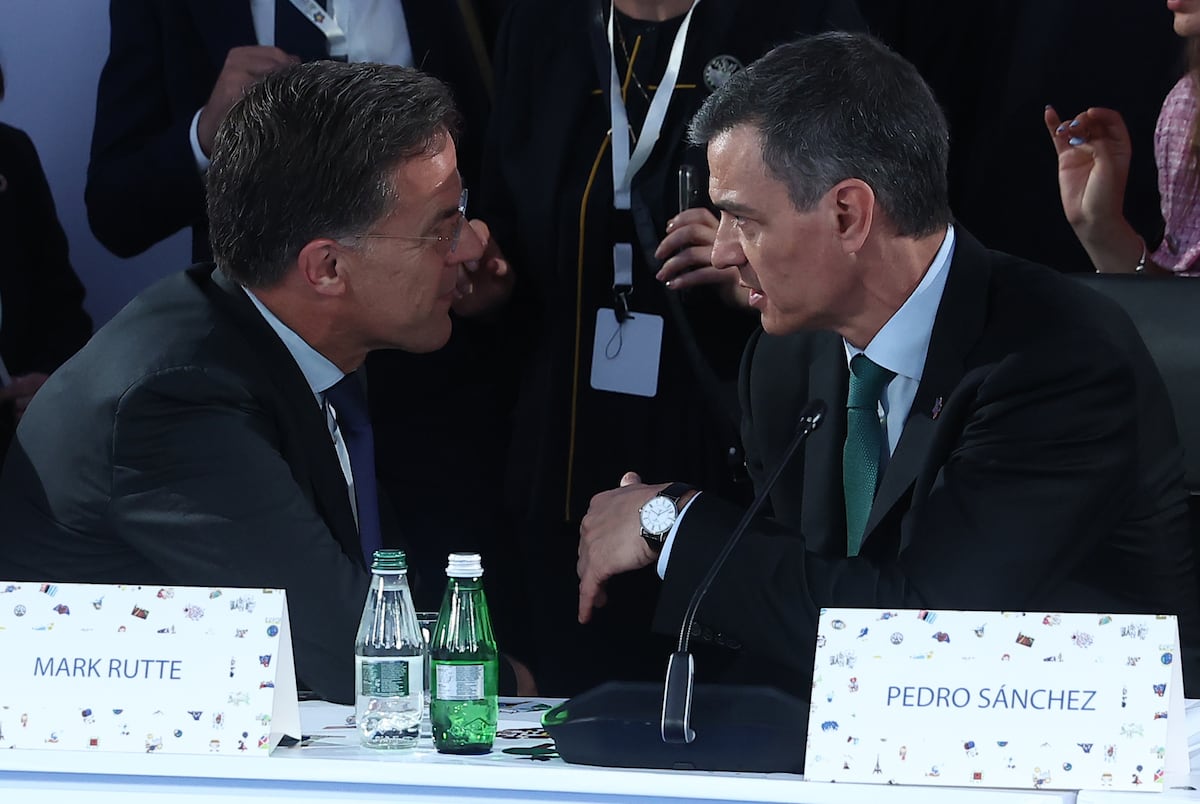Spain Rejects NATO's Proposed Defense Spending Increase Amid Budget Disputes
Spain's Prime Minister Sánchez calls NATO's proposed 5% defense spending increase unreasonable, emphasizing a commitment to reach 2% by 2025 instead.
Overview
- Spain's defense spending is currently at 1.3% of GDP, the lowest among NATO's 32 member nations.
- NATO has set a target for members to spend at least 2% of GDP on defense budgets, following Russia's invasion of Ukraine.
- Spanish Prime Minister Pedro Sánchez deems NATO's proposed increase to 5% as unreasonable and counterproductive.
- Sánchez advocates for a more flexible approach to defense spending targets while committing to increase spending by 10.5 billion euros by 2025.
- The disagreement underscores ongoing tensions within NATO regarding defense commitments and budget disputes among member nations.
Content generated by AI—learn more or report issue.

Get both sides in 5 minutes with our daily newsletter.
Analysis
Center-leaning sources frame Spain's rejection of NATO's defense spending proposal as a reasoned stance, emphasizing the unreasonableness of the target. They reflect a cautious perspective, highlighting Prime Minister Sánchez's reluctance to commit to specific spending, suggesting a balance between national priorities and international obligations.
Articles (6)
Center (3)
FAQ
Spain's Prime Minister Pedro Sánchez considers the proposed increase to 5% of GDP unreasonable because it would require an enormous budget increase—equivalent to around 80 billion euros annually, almost half of Spain's pension expenditure. Sánchez believes this target is premature and counterproductive at this time, advocating instead for a more flexible approach while committing to raise defense spending to 2% by 2025.
Spain currently spends approximately 1.3% of its GDP on defense, which is the lowest among NATO's 32 member countries. NATO's existing target requires members to spend at least 2% of GDP on defense, and the new proposed target by some allies and the US is 5%, which Spain rejects.
Spain has committed to increasing its defense spending by 10.5 billion euros by 2025 in order to reach NATO's previous target of 2% of GDP on defense expenditure, rejecting the more ambitious 5% target proposed recently.
Spain’s rejection highlights ongoing tensions within NATO concerning defense budget commitments. Because NATO agreements require unanimous approval, Spain’s opposition to the 5% spending goal, along with resistance from other countries, could block or delay the adoption of such a significant increase during the summit.
NATO’s increased defense spending demands come in the context of heightened global security concerns, including Russia’s invasion of Ukraine and rising tensions in the Middle East between Israel and Iran. These conflicts are pushing NATO members to strengthen their military readiness and defense budgets.
History
- 16d

 3 articles
3 articles



